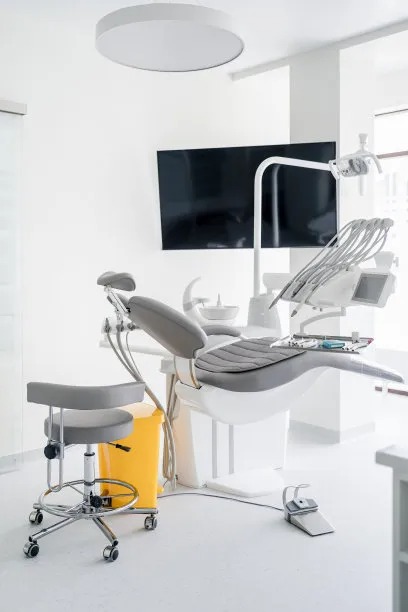Summary: Dental filling treatments are essential for restoring the structure and function of damaged teeth. However, taking essential precautions before the procedure can significantly enhance ones oral health and recovery process. This article outlines critical preparations, including dietary considerations, medical evaluations, addressing anxiety or fear, and aftercare strategies. By ensuring these precautions are taken, patients can pave the way for a smoother dental experience and optimal healing. The following sections provide detailed explanations and recommendations for each area.
1. Dietary Considerations Before Your Appointment

Food choices before undergoing a dental filling can have a considerable impact on the procedures effectiveness. It is advised to avoid high-sugar items which can exacerbate tooth decay and may complicate the filling process. Sticking to a healthy diet that includes fruits, vegetables, whole grains, and lean proteins can help maintain good oral health leading up to the appointment.
Moreover, staying hydrated is important. Drinking enough water ensures that your oral environment remains moist, helping to reduce any discomfort during the procedure. Avoiding alcohol and caffeine before the dental filling is also critical as these substances can lead to increased anxiety and dehydration, which can negatively affect your overall experience.
Lastly, some dental professionals recommend having a light meal prior to the appointment. Eating a gentle meal can keep blood sugar levels stable, preventing faintness or fatigue during the procedure. Foods that are easy to chew and digest may help keep a sense of comfort and calmness right before the treatment.
2. Medical Evaluations and Disclosures
Before undergoing dental filling treatments, it is essential to provide your dentist with a full medical history. Disclosing any allergies, chronic illnesses, or ongoing medications can assist the dentist in selecting the most appropriate filling material. For instance, patients with latex allergies may need alternative materials to accommodate their needs.
Additionally, if you have any dental anxiety or fears, you should discuss these concerns with your dentist beforehand. Understanding your emotional state will help them tailor the treatment to reduce your discomfort. This may include options such as sedation dentistry, which can be beneficial for patients with significant anxiety.
Regular check-ups leading up to the appointment also ensure that underlying issues are addressed. For instance, untreated inflammation or gum diseases can adversely affect recovery post-filling. A comprehensive dental evaluation helps create a plan for your oral health which goes beyond just the filling procedure.
3. Addressing Anxiety and Mental Readiness
Anxiety about dental procedures is common for many patients. As such, recognizing and addressing this apprehension is vital. Several strategies can ease dental anxiety, such as mindfulness techniques or deep breathing exercises. Engaging in these practices can result in a calmer mindset before the dental filling procedure.
Furthermore, arranging for companionship can be helpful. Bringing a friend or family member to the appointment can provide emotional support, making you feel more at ease in the dental chair. This presence can serve as a comforting distraction and help ease the stress of the process.
Finally, consider discussing relaxation options with your dentist. Many dental offices offer options like calming music, aromatherapy, or visualization techniques to create a positive atmosphere. Utilizing these methods can significantly reduce anxiety levels and promote a steadier approach to undergoing dental fillings.
4. Aftercare Strategies for Optimal Recovery
Post-procedure care is equally important for swift recovery following dental fillings. The first step involves following your dentists aftercare instructions diligently, such as waiting a few hours before eating or drinking to allow the filling to stabilize. Initial discomfort or sensitivity is normal, but should be monitored; if pain persists or worsens significantly, immediate contact with the dental office is recommended.
Maintaining oral hygiene after the filling is crucial for preventing infections. Gentle brushing and rinsing with warm saltwater can promote healing and help in reducing any discomfort. Avoiding hard, sticky, or extreme temperature foods is advised post-treatment as they can cause unnecessary pressure on the newly filled tooth.
Lastly, scheduling a follow-up appointment can ensure everything is in order and allow the dentist to evaluate the healing process. Regular check-ups help catch any potential issues early on, ensuring that your dental health remains a priority long after the filling has been completed.
Summary:
Taking essential precautions before dental filling treatments enhances ones experience and aids in recovery. Prioritizing dietary considerations, undergoing medical evaluations, managing anxiety, and implementing robust aftercare strategies all contribute to optimal oral health. By preparing adequately, patients can expect a smoother treatment process and better outcomes post-filling.
This article is compiled by Vickong Dental and the content is for reference only.
Vickong Dental
Vickong Dental is a large medical group established in Hong Kong in 2008 by professors from well-known medical universities in Guangdong and Hong Kong, as well as medical doctors from key national '985' universities (including Master's supervisors and senior professors). The chain of branches brings together expert dentists with PhDs and Master's degrees from Hong Kong and Mainland China, committed to providing high-quality dental treatment.
"Vickong Dental Practices the University Motto of 'Healing and Serving Society,' with a Stable Operation for Sixteen Years. It Has Been honored with Hong Kong Enterprise Leaders's Choice,' and is a Global Trusted Implant Center for the Nobel Implant System. Recommended by Hong Kong Metro Broadcast and Guangdong Television, it Serves Customers from Over Thirty Countries and Regions, Gaining the Trust and Favor of Citizens from the Guangdong-Hong Kong-Macau Greater Bay Area and Surrounding Cities.

Thousands of customers' unanimous praise
The most recognized and highly recommended dental service by customers in the Guangdong-Hong Kong-Macau Greater Bay Area
We Ensure You Receive Detailed Care and Attention Here
Hong Kong standards, Shenzhen prices, Your Trusted English-speaking dentists

Vickong Dental Medical-Grade Instrument Disinfection Process
Vickong Dental Medical-Grade Instrument Disinfection Process

Vickong Dental Chain: A Warm and Comfortable Environment for Treatment






Appointment Hours

Q&A
Why choose Vickong Dental?
Vickong Dental practices the university motto 「Medicine to Benefit Society」, with each branch bringing together highly qualified dentists with doctoral and master’s degrees from Hong Kong and the Mainland, and has maintained seventeen years of steady operation。Recipient of 「2024 Hong Kong Enterprise Leaders Brand」, 「2025 Hong Kong Enterprise Leaders Brand」, a Nobel Biocare Global Trusted Implant Center, and a brand recommended by Metro Radio Hong Kong and Guangdong TV。
To date, we have served customers from more than thirty countries and regions,earning exceptionally high word-of-mouth recognition and trusted recommendations from residents across the Guangdong-Hong Kong-Macao Greater Bay Area and surrounding cities
We have eight major branches in Zhuhai、Shenzhen,and a consultation and service assurance center in Hong Kong,so you can book a free consultation at any time for any questions,which is very reassuring.
If I do not accept the quotation after the CT scan, will I be charged??
No! As long as the actual treatment has not started, you will not be charged any fees.
Will there be any additional charges during the treatment process?
No, there won’t be any additional charges. Before treatment begins, we will clearly explain the treatment plan and its corresponding fees. Only after the patient agrees and signs the consent form will we proceed with the dental service.
Can I pay in Hong Kong dollars?
Yes. Vickong Dental accepts payment in Hong Kong dollars. The amount will be converted based on the exchange rate of the day, and the applicable rate will be clearly communicated to you in advance.
Can I reschedule my appointment at any time?
Yes. Please contact us via **WeChat** or **WhatsApp** as early as possible, providing your original appointment time and details, along with your preferred new date and time slot for rescheduling.













